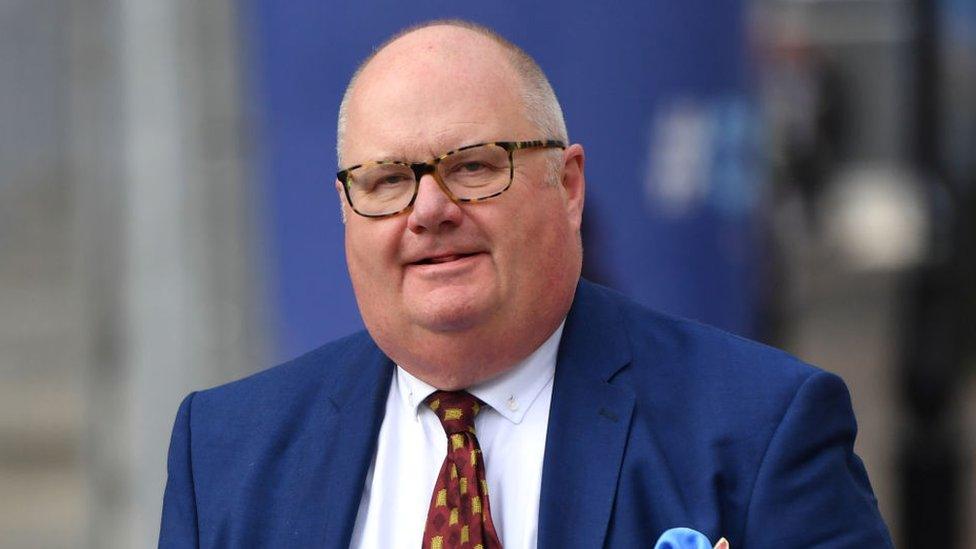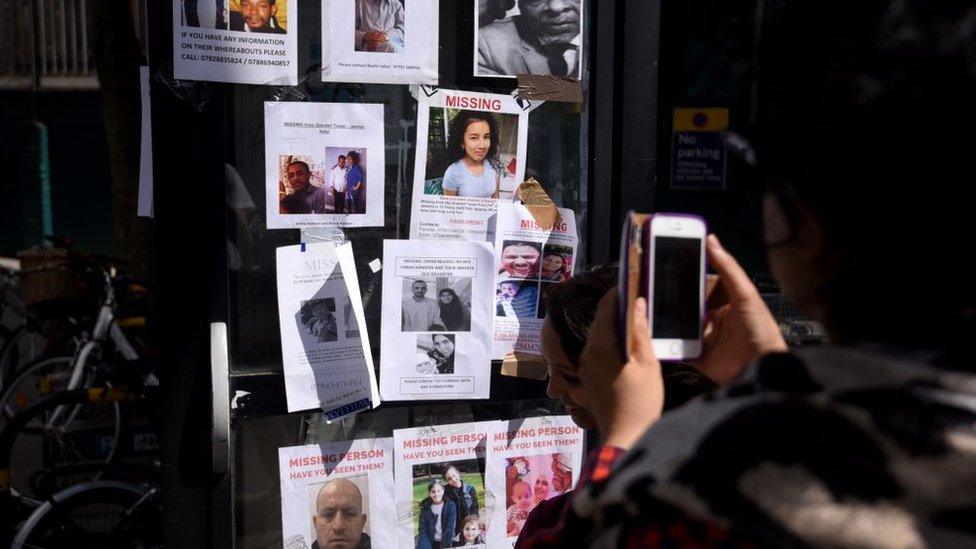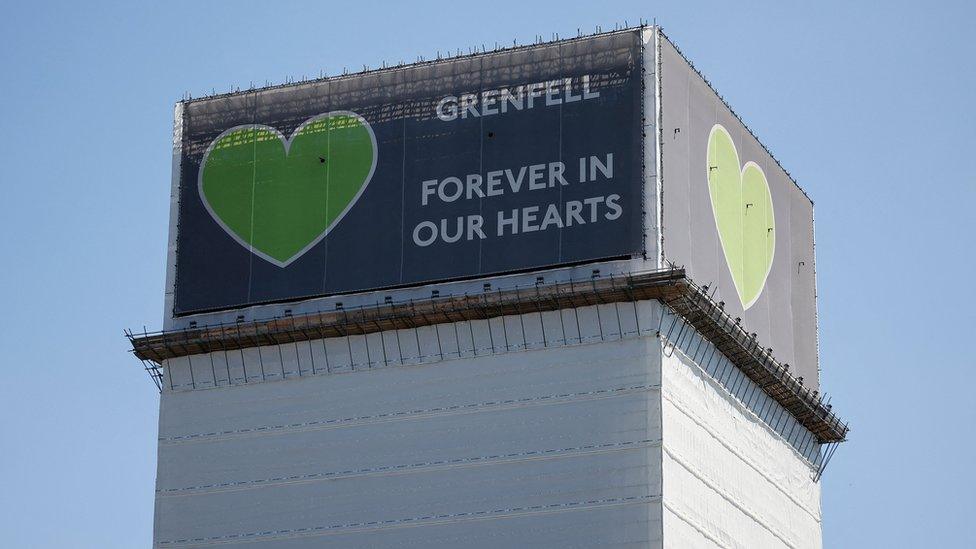Grenfell Tower inquiry: Lord Pickles apologises for death toll error
- Published

Lord Pickles was Housing Secretary from 2010 to 2015
Former Cabinet minister Lord Pickles has apologised for getting the number of people who died in the Grenfell Tower fire wrong while giving evidence to the inquiry into the disaster.
Lord Pickles spoke last week of "the nameless 96 people who were killed".
But 72 people died in the west-London fire in 2017, all of whom have been named.
In an email, external to the inquiry, the former housing secretary said he "misspoke".
The apology came as the inquiry continued to hear evidence, with lawyers for the victims saying the local council hired a PR firm as the fire was still burning, while survivors were left without food, money and even clothing in the days after the disaster.
In his email, Lord Pickles said that, while preparing for the inquiry, his "mind was also on other tragedies", including the 1989 Hillsborough disaster.
"In my final remarks I misspoke and referenced the 96 people that died in and immediately after Hillsborough," he said.
"I apologise to the family and friends of the 72 people who died at Grenfell for this unintended mistake, which was unscripted.
"The dead are remembered not as a statistic but with dignity by their families, survivors and all of us."
For many years, the number 96 was associated with the number of victims who died following the Hillsborough stadium tragedy, although a 97th name was officially added to the death toll last year.
The Grenfell United campaign group, which represents many bereaved, survivors and residents, said at the time Lord Pickles' "disrespect" had left members speechless.
In his second day giving evidence, Lord Pickles appeared to suggest the inquiry's senior counsel should speed up as he had meetings planned for the afternoon.
He later apologised for being "discourteous" and said he had decided to cancel his meetings because "this is more important than anything I'm doing".
Elsewhere, he said he took full responsibility for any failures in the housing department, which he led in the years of the Cameron coalition government between 2010 and 2015.
'Unable to cope'
In Monday's hearing, the inquiry was told victims were not treated with the "dignity that they deserved" during the chaotic days following the fire, as lawyers for the victims and survivors suggested they would have been treated better if they had not been living in social housing.
It heard of several failures in the first seven days after the fire:
Survivors and other residents were left without food, money, their phones and even proper clothes
The local council in Kensington and Chelsea had no accurate list of the occupants of the tower
The council's emergency response effort relied on its own staff to volunteer, unpaid, leading to a shortage of help
It took 48 hours to hand over control of the incident under established London-wide procedures for emergencies
Lawyer Imran Khan, representing a group of victims, said the council's response "exacerbated what was already a dire situation, and was severely damaging to the lives of our clients, even until today".
Danny Friedman, acting for the bereaved and survivors of the fire, along with local residents, said they found themselves at "ground zero" the morning after the fire.
They were in the midst of a "humanitarian and political crisis", he said.
Mr Friedman told the inquiry that the council appointed a PR firm, with the fire still burning, and internally officials were warning about "local instigators" within the community who were "fabricating stories" about what had happened.

Posters of missing people were stuck up near the tower in the days following the fire
Survivors and other residents struggled to get any information about relatives and friends who might have lost their lives and resorted to making their own lists of potential victims on the wall of a local gym.
In the months that followed, they were forced to live in hotels, booked by the council - or temporarily rehoused in other tall buildings, despite having escaped a fire in a high-rise block.
The council's lawyer, James Maxwell-Scott, told the inquiry that the Royal Borough of Kensington and Chelsea acknowledged "shortcomings in its emergency relief response" and apologised for failings of leadership.
He said the council had "found itself in the middle of the biggest national news story of the day", and that the organisation accepted that "its leadership was unable to cope in the days after the fire".

FROM OYSTERS TO ANCHOVIES: How popular are your opinions on controversial foods?
Q-ANON AND CULTURE WARS: Nine things we learned when Jon Ronson spoke to Louis Theroux

Related topics
- Published7 April 2022

- Published6 April 2022
